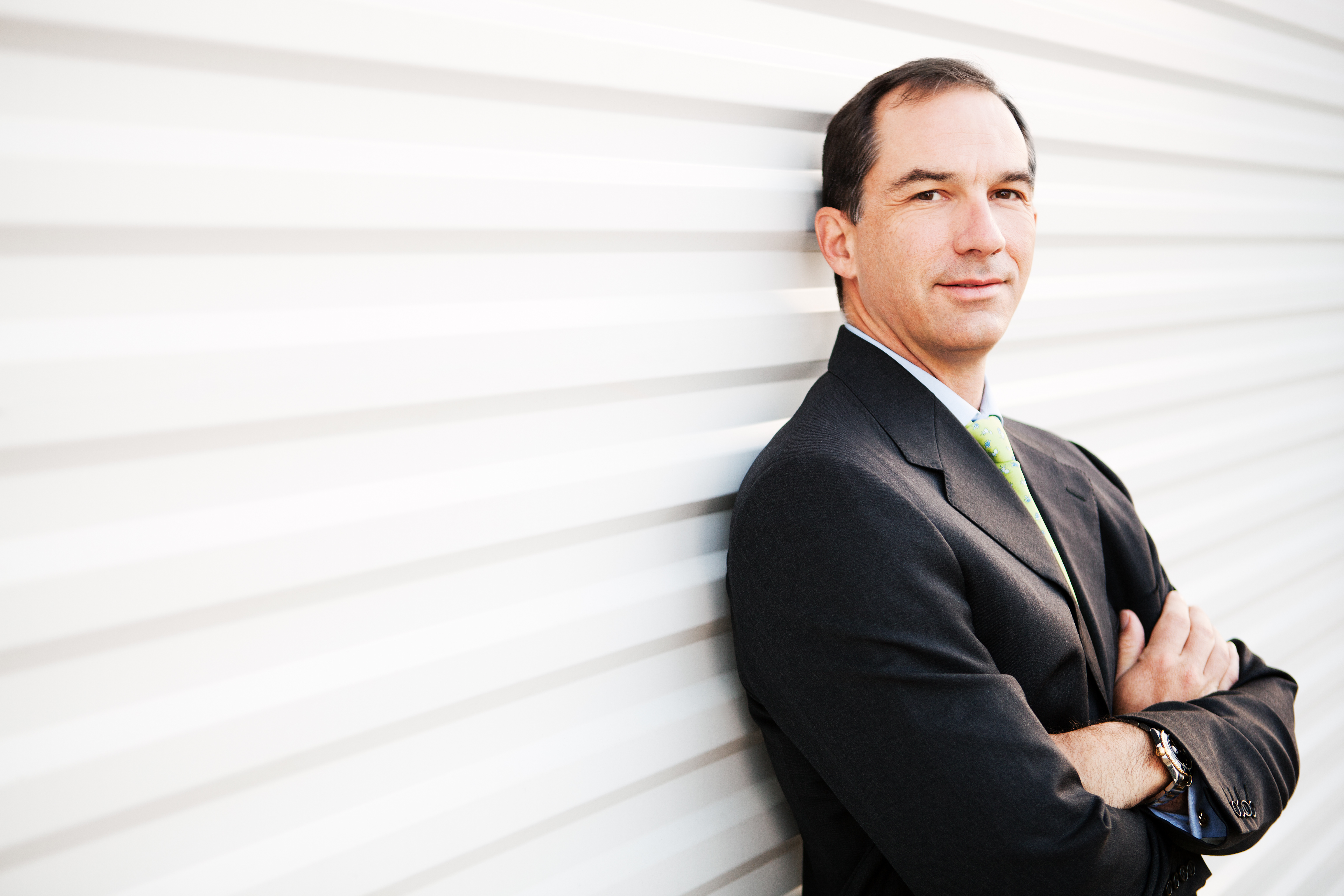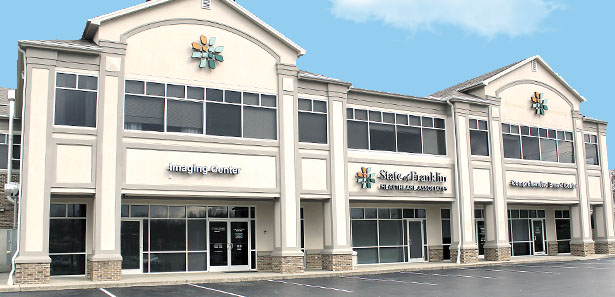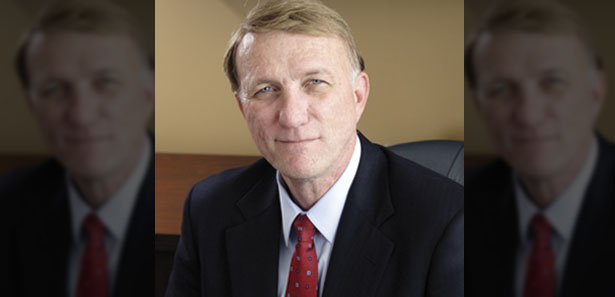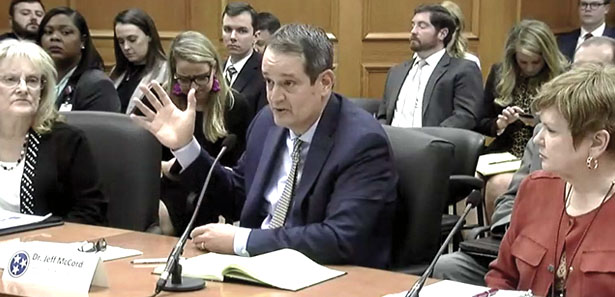Business is very good at Eastman Chemical Co., CEO Mark Costa told a capacity crowd gathered March 5 at Meadowview Convention Center for Eastman’s annual Regional Leaders Breakfast. He warned against complacency, though, and exhorted the area’s political and business leaders to work at maintaining and enhancing the Tri-Cities’ quality of life so Eastman can continue to attract and retain top talent from around the world.
Costa sat down afterward with the Business Journal to further discuss Eastman, covering topics ranging from earnings and business lines to prospects for continued acquisitions and the political and macroeconomic trends that most impact the company.
Business Journal:Your predecessor (Jim Rogers) set high earnings targets for 2014 ($6.70 to $7.00 per share). Do you feel those targets are overly aggressive at this point?
Mark Costa:I think the targets are very doable. What we send at the end of January when we did our fourth quarter earnings call, which was giving this guidance for the next two years, 2014 is a year where we still have a lot of momentum, I think, in a recovering economy, that helps all of our products around the world.
That’s an assumption, but there’s a lot of specific actions we’re taking that drive that earnings growth. We identified 50 to 75 cents a share that we’re delivering because of new capacity, expansions that we’re adding where market demand’s exceeding our capacity. We feel confident that once it comes on line we’ll fill it out.
We have some very high growth, high margin premium products. Tritan would be one of those, as well as the acoustic inner layers – that’s what you put in the safety glass in a car. We have a high performance product that doesn’t just make the windows safe but allows it to quiet the cabin. A lot of the noise in the cabin comes through the front windshield as you go down the road.
We have non-phthalate plasticizers, which grew 25 percent last year and will keep on growing as people move out of phthalates. This is for modifying things like PVC flooring and toys. There’s a concern some consumers have around the safety of phthalates from personal exposure.
BJ: Is that concern valid?
MC: I think the science is very debatable, it isn’t clear, but consumers think that. It’s like Tritan. People want a BPA-free product that doesn’t have polycarbonate and BPA in it, and I’m not about to comment on the science, but people have made their mind up that they don’t want to take the risk and we’re happy to supply a product to them that doesn’t contain BPA.
BJ: Tritan is produced in Kingsport, and you called it a high-growth, high-margin product, with volume growing by 50 percent last year. What does that mean for Kingsport operations and for the company’s bottom line?
MC: The margins are stable, so that’s also revenue and profit growth. Demand is very strong. We have about 60,000 tons of capacity that we’ve filled out. We’re rushing to de-bottleneck that plant. We’re doing a 25 percent de-bottleneck of that plant that will come on line late summer/early fall, and then we’ll have a bigger expansion we’re looking at doing on top of that.
So (with respect to profitability) the mix is upgrading, we’ve got some licensing that we can do that we will hopefully get done this year, and continued cost synergies from the Solutia integration. So you have a bunch of things you can control, and then you’ve got the economy.
Most importantly, we have tremendous free cash flow after (capital expansion) and dividends. We’ll do at least $600 million of free cash flow that you can either use for acquisitions or for buying back stock. You can get earnings growth two different ways, in the numerator and in the denominator, and part of how we’ll get there is reducing share count as well as growing earnings, which is what most companies these days are doing – why the economy isn’t growing that strong, but people have strong cash flow.
BJ: Does deployment of cash flow this year mark a change from companies holding on to their cash coming out of the recession?
MC: No one’s holding onto cash anymore. Most chemical companies have done a good job of cleaning up their portfolios. We’re in the process of doing that. Everyone’s got strong cash flow and is looking for ways to make investments. So the challenge becomes in that environment, and low interest rates, you can go do dumb things. You can go after acquisitions and overpay, because you see them out there, you’ve got this cash, you want to exploit the current low debt market before it disappears, and so you get a bit of a frothy market in M and A where valuations get unrealistic.
BJ: How do you avoid that?
MC: You just have to be disciplined. You have to walk away. We’ve done a great acquisition in January when we bought BP’s turbine oil business for aviation. That is a great complement to our hydraulic fluid business that we sell in the aviation market. You’ve got to be places where you have unique synergies. You’re going to pay a full price but because you can uniquely do something with that business, you can still create a good return. Otherwise you’ve got to be careful. We’ve walked away from a lot of deals lately for that reason.
BJ: Do you believe continued and accelerated growth in the Tri-Cities’ diversity, ethnic and otherwise, is necessary to continue to attract the kind of talent that you need?
MC: As a global company we’re committed to diversity, and we work very hard in making sure we have a culture that embraces and is open to it, whether it’s gender or race. I think we are leading the area in trying to bring in folks of diverse backgrounds, because I think if you’re going to succeed as a global innovative company you have to have multiple perspectives. It’s easy in a small town to get one perspective.
So we’re doing everything we can, but there’s no question that the region doesn’t have a high minority percentage, so the whole region needs to think about what it should be doing to try and attract that talent, because there’s a lot of talent out there.
BJ: Do your employees from different background and from outside the area generally feel like it’s an okay place to live, if not good?
MC: We have lots of diverse talent at Eastman, and I think the employees find it a great culture and that people are very open and welcoming. I’m not aware of any issues on that front.
BJ: What are the primary challenges to Eastman’s hitting those earnings targets we discussed earlier?
MC: The major uncertainty we have is like everyone, the economy. I think we’ve got great products and great markets. We’re the strong leader in two-thirds of the revenue of our company in the markets that we serve. So we’re well-positioned, but you need growth. We have a lot of actions that we can control that we’re taking, but you still have to have an economy at your back, and I actually am optimistic about the economy this year relative to last year. The winter has thrown a curveball at us in North America to understand exactly how this economy is going to play out, but if you look through consumer sentiment, talk to people who are in building, construction, automotive, they still seem to be pretty optimistic. And we’re just going to have to wait until April to really find out the fact on that one.
BJ: On the political front, would tax reform and immigration reform be germane to Eastman’s future?
MC: The better we reform immigration, the more talent from around the world we can bring in to work in the U.S., which is a priority for us. Tax reform of course makes a big difference. We have one of the highest (corporate) tax rates in the world, 35 percent. The only country I’m aware of that’s above us is Chad, so as we’re competing for attracting investment, we’ve put ourselves at a pretty significant disadvantage.”
BJ: I’ve heard 25 percent’s been floated as an alternative, but it doesn’t sound like people are real hopeful about it – I think it was (Michigan Republican and House Ways and Means Committee Chairman) Dave Camp?
MC: He’s got a very sensible approach to try to think about tax reform and stay revenue-neutral, which is the challenge with the current administration wanting to increase revenue, not keep it neutral. That’s where the tension sits between the Republicans and the Democrats. How they come to agreement on this where it’s about attracting long-term investment, which is a low tax rate, versus ‘I can now change taxes as a way to bring in more revenue to fund my programs’ is where I think the tension sits between the two parties, which I think is pretty predictable. Our view and what we advocate is the lower tax rate, revenue neutral approach that I think is essential for this country, and especially not doing things that punish industrial companies.
Some of the ways to think about keeping it revenue neutral is removing accelerated depreciation, so heavy asset companies would be severely punished by what’s being considered in DC, and we’re against that, because it would hurt the industrial base of America and obviously Eastman’s part of that. We need to remember that the service sector only exists to serve an industrial base. If you don’t have an industrial base, a lot of services disappear.
BJ: Would you handicap tax reform for us?
MC: I don’t think it’s likely to happen this year. Everyone’s about politics and winning elections in November. I wish people in DC would focus on leading the country and fixing the country as opposed to staying focused on getting re-elected, and just come together and collaborate. In the past, if you go back to the ‘80s and the ‘90s, both sides got together and collaborated really well together to solve problems, and we have lost our way from both parties being too extreme. The only solution this country has if we’re going to continue succeeding as we have is getting back to the center and finding solutions everyone can get behind. Otherwise, we’ll just continue doing nothing.
We’re incredibly fortunate to have the representation we have in Congress, especially (Sen. Bob) Corker and (Sen. Lamar) Alexander and Governor Haslam here in the state, who are three of the most pro-business and sensible-minded politicians I’ve ever met, who try and find solutions that work for everyone. I think we should never dismiss the advantage we have because of them and I’d happily stack them up against any other state.





